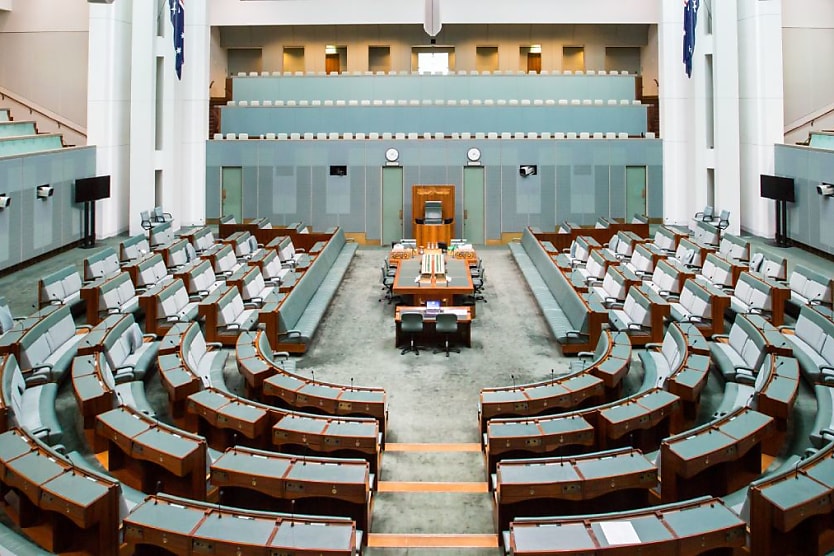State parliamentarians ‘very disappointed’ by federal wage theft reform
SHARE THIS ARTICLE

As the first tranche of industrial relations reforms clear Federal Parliament, debate is raging over certain contentious elements. In the spotlight today is the new criminalisation of wage theft at the national level.
New federal criminal offence
Wage theft occurs when employers fail to give their employees their legal entitlements – from pay to annual leave. While wage theft has long been remedied by instruments of civil law, workers who deliberately engage in wage theft will, by 2025, be exposed to potential criminal liability – as was already the case in Victoria.
It is precisely here that the debate begins. Since the Wage Theft Act 2020 came into effect, it has been a criminal offence in Victoria to “dishonestly withhold employee entitlements”.
State legislation
As noted by Victorian Premier Jacinta Allan: “Wage theft is a systemic problem across the economy, and that’s why Victoria acted to ensure employers who stole money and entitlements from their workers would face the full force of the law.”
Despite her praise surrounding Victoria’s criminalisation of wage theft, Ms Allan’s response to the new federal offence was less than enthusiastic.
“Victoria is disappointed that the Albanese government failed to follow through on its election commitment to allow existing state laws to remain in operation in the Closing Loopholes Bill,” she said.
“A carve-out for Victoria’s laws would have ensured that the strong and robust protections for Victorian workers contained in our wage theft scheme could be maintained.”
At the heart of her criticism was the claim that Victoria’s wage theft reforms were the more robust and that the national harmonisation of wage theft under the softer federal legislation undermines the earlier Victorian gains.
Victorian Treasurer Tim Pallas claimed that the “much less robust” federal offence had unjustifiably supplanted the Victorian legislation put this same argument forth. In challenging federal Treasurer Jim Chalmers, Mr Pallas claimed that the federal legislation had been “born of compromise through the Senate and parliamentary processes at the Commonwealth level”.
“The federal government when they were seeking election gave an assurance to all Australians that they would do no harm to the pre-existing wage theft jurisdictions of Victoria and Queensland. Well, quite contrary to that, passage of this legislation means that our wage theft legislation is finished,” said Mr Pallas.
“I’ve got to say with a fair degree of candour that I’m very disappointed.”
Overlapping instruments
Though it is generally understood that when federal law conflicts with state law, the federal legislation wins out – overlapping legislation can still cause confusion. Indeed, some rumblings were heard earlier this year when state and territory governments intervened in a High Court case to claim their wage theft laws could co-exist with federal underpayment laws.
At the time, Australian Chamber of Commerce and Industry chief executive Andrew McKellar said the move demonstrated a “hopeless lack of coordination between state and federal jurisdictions”.
“It should be clear that any new federal wage theft criminal offence should expressly override all comparable state offences,” Ms McKellar said.
Though some are unhappy with the “softer” federal legislation, it has at least clarified that any state or territory legislation will be effectively replaced.
“Now that the bill has been passed by Federal Parliament, the Commonwealth legislation in practical terms overtakes the Victorian wage theft scheme, and we therefore intend to repeal the Victorian offences to avoid uncertainty for the community and businesses,” explained Ms Allan.
Despite the concerns, many have heralded the reform as a step in the right direction, at least for those jurisdictions without existing wage theft criminal offences. The brunt of the criticism has not been against the need for a wage theft offence but rather that it will not go far enough.
“It’s an overdue reform,” said Slater & Gordon’s Michael Sayers. “This will mean in all states and territories, if it’s clear a company knowingly and intentionally steals from workers by deliberately not paying what they’re entitled to, there will be repercussions.”
“If a worker steals from the till, they face criminal prosecution. If employers steal from a worker, they should also face serious sanctions.”
To get up to speed on the federal workplace reforms, read here.
RELATED TERMS
Benefits include any additional incentives that encourage working a little bit more to obtain outcomes, foster a feeling of teamwork, or increase satisfaction at work. Small incentives may have a big impact on motivation. The advantages build on financial rewards to promote your business as a desirable employer.
Nick Wilson
Nick Wilson is a journalist with HR Leader. With a background in environmental law and communications consultancy, Nick has a passion for language and fact-driven storytelling.

